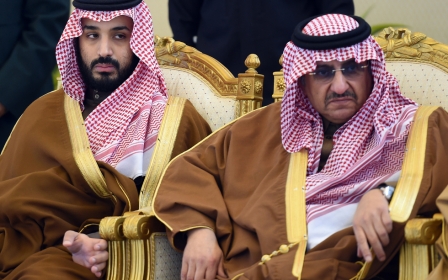Syria rebels agree talks with government - but demand Assad's removal

Syrian rebel leaders have met to appoint a delegation that will hold negotiations with representatives of President Bashar al-Assad’s government next month - but have insisted on several preconditions to any talks.
A 33-member body held talks in Riyadh on Friday, the day after the conclusion of a landmark conference in the Saudi capital that brought together a broad swathe of the fractured Syrian opposition for the first time since the conflict began.
The summit ended in confusion on Thursday amid reports that Ahrar al-Sham, one of the biggest Islamist rebel groups fighting on the ground, had walked out over the inclusion of what they called “pro-regime” figures in the talks.
A joint statement was issued at the end of two days of talks, stating that President Assad must have no role in any transitional government - there were conflicting reports as to whether Ahrar al-Sham had signed.
Though the statement reiterated the delegates’ opposition to Assad retaining any power, it did say that the opposition is “ready to negotiate with representatives of the Syrian regime…within a specific timeframe that would be agreed on with the United Nations”.
The conference succeeded in electing a 33-member Supreme Council for Negotiations, which met on Friday to choose who will meet representatives of Assad’s government in the first 10 days of January.
The council includes 11 members from Syria’s armed rebel groups, nine from the Syrian National Coalition – including its leader Khalid Khoja, eight independents and five from the National Co-ordination Body, an activist bloc dismissed by the Free Syrian Army as an extension of Assad’s government.
Charles Lister, a fellow at the Brookings Institute Doha, reported sources in Riyadh as saying that the body had been expanded to 33 after an extra seat was added for the armed opposition, leaving them with a third of the total votes.
According to Lister, the armed opposition have set out several preconditions for meeting Assad representatives, including an immediate end to bombardments targeting civilian areas ahead of a six-week negotiation period leading to Assad’s departure.
The US secretary of state, John Kerry, said of the announcement: "There are some questions and obviously a couple of, in our judgement, kinks to be worked out."
Since the start of the civil war, the Syrian opposition has called for Assad to leave office before any peace negotiations can begin. Assad's backers, Russia and Iran, have resisted all calls to remove him.
The entrenched positions endanger a new diplomatic push announced in Vienna last month. Diplomats said they hoped for preliminary negotiations to begin by January, leading to a transitional government by June which would oversee elections within two years.
Kurdish-Arab alliance announced
Key Syrian Kurdish groups that have been instrumental in the fight against Islamic State were excluded from the Riyadh conference in a controversial move that prompted some Arab delegates to stay away too.
Kurdish groups instead held their own conference in the north-eastern town of al-Malikiyah, announcing on Friday the formation of a new Arab-Kurdish political wing, the Syrian Democratic Council.
The newly-created council consists of 42 members, and says it is committed to a "decentralised political system" for Syria.
One of organisers of the meeting said on Friday that, while President Assad is partly responsible for the conflict gripping Syria, he could also be part of the solution.
"If the regime is a part of the problem, it is also part of the solution," Sinahuk Dibo said.
The Syrian National Coalition, a key opposition group, said the Kurdish factions were excluded from the Riyadh conference because it only fights IS and not Assad's forces.
Turkey, a key backer of the Arab rebel groups, is also opposed to the Syrian Kurdish YPG, which it deems a branch of the Kurdistan Workers Party - a group outlawed as "terrorist" in Turkey.
The announcement of the new Kurdish-Arab alliance came following a huge triple suicide bomb attack in a YPG-controlled town of north-eastern Syria on Thursday.
Between 50 and 60 people were killed when bombers blew themselves up at a hospital, a market and a residential area in Tel Tamer, a spokesperson for the YPG told Reuters on Friday afternoon, reporting a sharp rise in the casualty figures.
Stay informed with MEE's newsletters
Sign up to get the latest alerts, insights and analysis, starting with Turkey Unpacked
Middle East Eye delivers independent and unrivalled coverage and analysis of the Middle East, North Africa and beyond. To learn more about republishing this content and the associated fees, please fill out this form. More about MEE can be found here.





